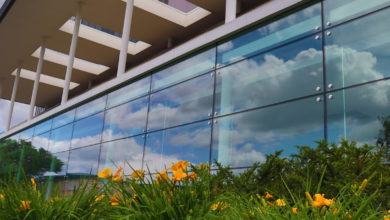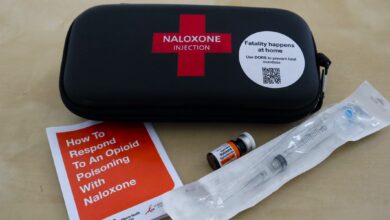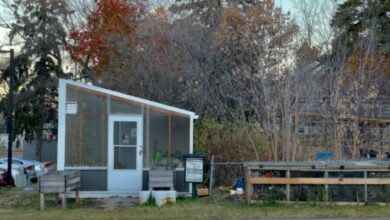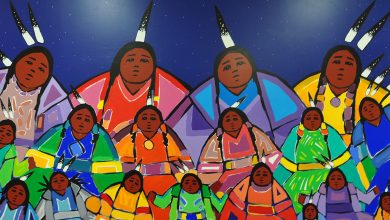The future of coffee: Eco-sustainability and its challenges
"People question whether we will even have much coffee production by 2050," U of A researcher says.
 Supplied
SuppliedFor many people, coffee fuels different areas of life. Whether it’s a daily morning cup (or two), a companion during finals week, or a last-minute date idea — coffee consumption is ingrained in the habits and lives of many.
Because coffee is consumed at a high rate worldwide, people in the coffee sector are wondering if the product is sustainable enough to last. The eco-sustainability of coffee is continually faced with challenges involving today’s coffee farmers, distributors, consumers, and climate change — in addition to overconsumption.
Coffee production will “go down in the next 10 years,” according to U of A researcher
Kaan Ozdurak, a researcher in the faculty of agricultural, life, and environmental sciences at the University of Alberta, did his master’s research project on corporate motivations to adopt regenerative agriculture.
During his research, he began by only looking at the coffee sector — the main focus of his master’s project — through an ecological perspective. However, he later found that the livelihoods of farmers are an important aspect in the sector.
“A lot of coffee farmers go three to four months a year in hunger, and there are about 12 million coffee farms in the world. That’s why livelihoods are important in the coffee sector,” Ozdurak said.
According to Ozdurak, the demand for coffee is increasing as more people switch from tea to “one of the most traded, valued and sought commodities in the world.” The supply of coffee may potentially stop meeting the demand, however, due to other factors in the sector.
“Coffee is one of the most susceptible crops to climate change — it’s very vulnerable to change in climatic conditions,” Ozdurak said. “There’s also an increase in pests and fungi [due to an increase in temperature] that affect coffee production.”
Climate change is having a growing impact on the production of coffee, according to Ozdurak. Coffee requires either cooler or warmer tropical climates to grow, and as climate temperatures are increasing, coffee farmers have to find solutions — such as moving to higher elevations.
The succession of coffee farmers is seen as a contributor as well, as younger people aren’t getting involved in the trade, and current farmers are leaving the coffee sector.
“In some countries, the average age range of farmers is in the 50s. If they’re not being succeeded, there’s no one there to grow the coffee,” Ozdurak said. He added that coffee farmers often find themselves competing with farms that earn more money, in which case some farmers switch sectors.
The eco-sustainability of coffee production has an impact on crops as well; due to the number of chemicals used, the organic matter in soil is reduced. This decreases the overall carrying capacity of the soil, affecting the ecosystem as a whole.
“Soils are getting poorer, the carrying capacity goes down, and biodiversity goes down.”
Although Ozdurak’s research shows how regenerative agriculture can help address the ecological issues of coffee production, he still thinks that there will be an inevitable decrease in production.
“Our prediction is that [coffee] production will noticeably go down in the next 10 years. People question whether we will even have much coffee production by 2050,” he said.
Rainforest Alliance speaks at U of A seminar on the future of coffee
On December 1, a seminar about the future of coffee was held at the U of A. The seminar was based on Ozdurak’s research, with Madiha Nawaz from the Rainforest Alliance (RA) as one of the main speakers.
RA is an international non-profit organization that helps companies complete “larger sustainability commitments,” and source products in an eco-sustainable way.
The organization also has its own certification seal, placed on products produced by certified farmers that practice “climate-smart agricultural practices.”
“The certification is the minimum that we would want companies to commit to, but then we work with them to continue improvement,” Nawaz said.
RA is approaching coffee sustainability through four main areas: building healthy soils, improving livelihoods for farmers, increasing biodiversity and ecosystem services, and creating adaptations to climate change.
According to Nawaz, 25 million coffee farmers and their livelihoods are being threatened by climate change, as high temperatures are causing low yields, creating a shortage of coffee.
She also mentioned that there are key challenges in the coffee sector that RA is working on, including ecological challenges, such as increases in pests, diseases, and extreme weather patterns.
In response to the ecological challenges faced by coffee farmers, RA has been implementing regenerative agriculture — “a holistic system looking to work in harmony with nature” — into coffee farms as a solution, according to Nawaz.
“Regenerative agriculture delivers nature-based solutions, which can help address the challenges of climate change, land loss and degradation, protecting and restoring natural resources, providing the sustainable livelihoods of farmers, and ensuring a thriving, healthy sector,” Nawaz explained.
Regenerative agriculture rebuilds that organic matter in soil, reverses the damages of chemical pollution, uses less chemicals, and increases the biodiversity of crops, and their surrounding areas.
Challenges in the coffee sector are not limited to ecological ones, according to Nawaz. Labour shortages and price fluctuations are impacting the industry as well, echoing Ozdurak’s point that there is a lack of younger people getting into the industry.
“Fifteen to 16 per cent of the cost of production for coffee in Latin America is for labour … farmers are aging, and we don’t have enough youth getting involved in the coffee sector,” Nawaz said.
“There’s price fluctuation and unreliability of coffee income. The last couple of years, coffee prices have been very high and great for farmers, because there’s been a shortage of coffee available around the world.”
Although coffee income is currently high for farmers, it is temporary — the fluctuation of income makes the job unstable, which could be why youth aren’t getting involved in the coffee sector, according to Nawaz.
Rosso Coffee Roasters’ role in coffee sustainability
David Crosby, founder of Rosso Coffee Roasters in Calgary, has implemented different eco-sustainable practices in his coffee business. Crosby’s introduction to direct-trade in the coffee sector helped mark the beginning of Rosso’s history with sustainability.
“One day we had problems tasting our coffee, and we noticed that batch-to-batch there were variances in the flavour,” Crosby said. “We realized that it was the roasting that was causing these challenges.”
This led Crosby to buying a roaster, rather than buying pre-roasted coffee. Crosby’s experience with learning about direct-trade came from having to buy green coffee.
Green coffee is the term used for unroasted coffee beans, which are often imported by a green coffee importer. When Crosby would get a list of available green coffee from an importer, there would often be a lack of details about the coffee farmer.
Coffee importers wouldn’t give detailed information when Crosby would ask about the coffee he bought. He said that importers were concerned that people would go and buy the coffee directly from the farmer — and they were right.
In order to understand the green coffee aspect in the industry, Crosby came to realize that direct-trade is a solution. Direct-trade in the coffee industry eliminates middlemen in the process of buying coffee from farmers, rather than middlemen “not adding a lot of value and layering costs.”
“We needed to understand this more, which meant that we needed to go to the origin — we needed to physically go meet coffee farmers, and buy as direct as possible.”
In 2015, Crosby and his brother travelled to Costa Rica and Guatemala, where they met farmers and coffee producers. Since then, Rosso as a company has created direct-trade relationships with farmers from 10 different countries.
Rosso has also integrated eco-sustainable practices such as eco-friendly coffee bags, made with 100 per cent renewable material that allows them to breakdown faster in landfills. According to Crosby, Rosso locations are also planning to go zero-waste.
“We’ve seen the coffee industry move to more sustainability, and for us that’s really important,” Crosby said.
He explained if customers want to consume coffee sustainably, there are three signs they can look for: buying local coffee, looking for a roast date to see if its fresh, and looking for the farmer’s details on the packaging.
“Those three, quick easy wins for a consumer are an easy way to let them know that they’re probably helping out the right groups.”
U of A alumni and co-founder of local coffee shop shares how consumers can buy sustainably
U of A alumni David Laville, is co-founder of Rogue Wave Coffee Roasters in Edmonton, which sells specialty coffee from countries such as Brazil, Ethiopia, Panama, Kenya, and Guatemala.
Rogue Wave has implemented different eco-sustainable practices into their business model according to Laville, especially through its roasting process.
“Most roasters run on natural gas, and just a year ago, we installed the most efficient roaster on the market,” Laville said. “It effectively recycles hot air [without] an afterburner, so you use less natural gas.”
Rogue Wave is also working towards only using packaging that is recyclable and manufactured in Canada.
“We’ve been very aggressive in working with partners within Canada to have all of our packaging manufactured here, versus overseas and shipped here,” Laville said.
Laville encourages people to buy their coffee locally, as doing so helps with “keeping the circulation of money within Edmonton.” According to Laville, there are different ways consumers can shop locally and sustainably.
“Bring a reusable coffee cup with you instead of getting the paper takeout cup, and it’s okay to ask questions about where your coffee comes from [so that] you’re making an informed choice,” he said.




